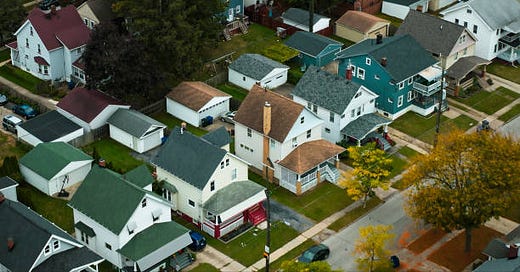The Midwest: Talent, Ambition and Culture
It's hard for a region's people and cities to be great, when being good enough is celebrated and striving for more is considered brash.
A view of Lakewood, OH, a suburb of Cleveland. It could be anywhere in the Midwest. It’s… nice. Source: gettyimages.com
Last weekend there was a debate taking place on a very small corner of the Internet. It was about the Midwest’s culture and its impact on growth and development prospects.
Before I get to the sides of the debate, I’d like to conduct a qu…
Keep reading with a 7-day free trial
Subscribe to The Corner Side Yard to keep reading this post and get 7 days of free access to the full post archives.



